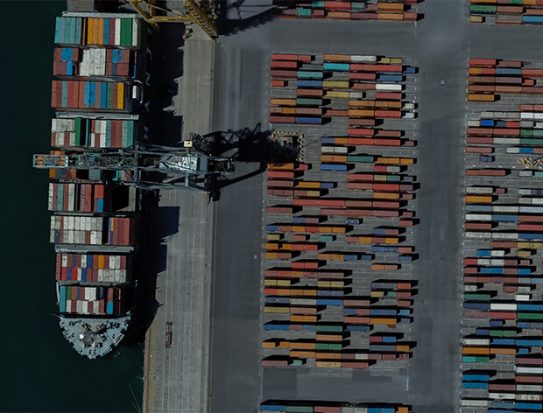The number of Russia-flagged vessels engaging in suspect shipping practices has soared in recent weeks, new data show, as Russian exporters explore ways to dodge western sanctions and overcome reputational concerns over their goods.
Within weeks of Moscow’s full-scale invasion of Ukraine, the US and its European partners slapped retaliatory sanctions on Russia’s largest banks, companies and wealthy oligarchs, in a bid to squeeze the Kremlin’s war chest.
Fresh data from maritime intelligence firm Windward suggest Russian companies have since ramped up efforts to disguise the origin of their goods out at sea, deploying age-old sanctions evasion tactics such as “going dark”.
There were 33 occurrences of dark activity lasting three-plus hours by Russian oil-chemical and oil-product tankers in the week up to March 25, more than double the weekly average of 14 seen prior to the invasion, Windward finds in a new report.
Windward’s analysis notes there was a significant rise in such activity among Russian tankers carrying crude.
“Before the invasion and subsequent sanctions, Russian crude oil tankers were barely involved in dark activities, with a weekly average of 1.1 such activities per week. Between March 19-25, that number skyrocketed to 20,” it says.
Dark activity – which refers to occasions where a ship’s automatic identification system (AIS) transponder stops emitting a signal showing its location – is not necessarily a sign of illicit behaviour. Such an event may occur when a vessel is moving through a crowded waterway or there are data privacy issues with transponders in a particular network.
But regulatory pressure has been growing on companies to watch out for such suspect behaviour. The US’ Office of Foreign Assets Control (OFAC) published a landmark advisory in May 2020 identifying several activities as indicative of illicit activity, including the manipulation of location transmissions.
“First and foremost, ships are going dark to counter reputational concerns and avoid public scrutiny,” says Ami Daniel, Windward’s CEO.
“All eyes are on Russia right now. Energy companies buying Russian oil are facing media scrutiny, so a lot of these Russian-related owners are starting to adopt the deceptive shipping practices of old. What we have seen North Korea and Iran doing with Russian guidance, we are seeing that increasingly happen,” he tells GTR.
As reported by Bloomberg in March, Russian oil sales have seen a steep drop off in recent weeks, despite India and China agreeing to ramp up energy imports from Moscow.
Russia’s oil exports shrunk by more than a quarter in the week March 17-23 compared with the prior week, Bloomberg said, citing industry data. It said the country’s average daily shipments were down by 26.4% from the week before, equivalent to about 3.63 million barrels a day.
The threat of falling foul of western sanctions and reputational concerns have contributed to an increasing reluctance among western buyers to touch Russian oil, despite Moscow providing discounts.
Speaking at the FT Commodities Global Summit last month, Trafigura’s CEO Jeremy Weir said there are “not many” buyers of Russian crude in the market, despite the “huge discounts” on offer of as much as US$30 a barrel.
“Quite frankly, there is a sanctions issue, there’s a voluntary sanctions issue, and people are concerned about whether they can buy the barrels and what the impact is,” he said.
For banks and companies wary of the moral and legal hazards of supporting Russian trade, compliance teams will have to be on alert to a host of other deceptive shipping practices in the coming months, experts say.
The use of front companies to conceal the beneficiary of a payment, the laundering of International Maritime Organization (IMO) numbers to pretend an old vessel is a brand new one, as well as the manipulation of AIS transponders are all potential tactics Russia could use, David Tannenbaum, a former US sanctions enforcement officer and now director of Blackstone Compliance Services, said during a March 24 webinar.
“We’re fully expecting the Russian government will throw its full resources behind evading sanctions and helping companies evade sanctions.”
“One thing the Russians will probably do that is a bit more novel is what we consider to be super-spoofing. People have already shown a capability to pretend that a vessel’s AIS transponder is in one location, when it is in a different one. But with a full network of transponders, and high-end cyber capabilities, they could start creating completely fraudulent AIS trails to make it look like a vessel has never been in a certain place.”
Windward’s Daniel also expects a surge in the number of transhipment cases involving Russia-affiliated ships, whereby vessels unload cargo to another ship at sea. “We have already seen a few cases of this,” he tells GTR.
Flag switching is another potential area of concern. Windward’s March data show a total of 18 Russian vessels changed their flags to that of a non-sanctioned country, the highest monthly showing since it started collecting data in January 2020.







